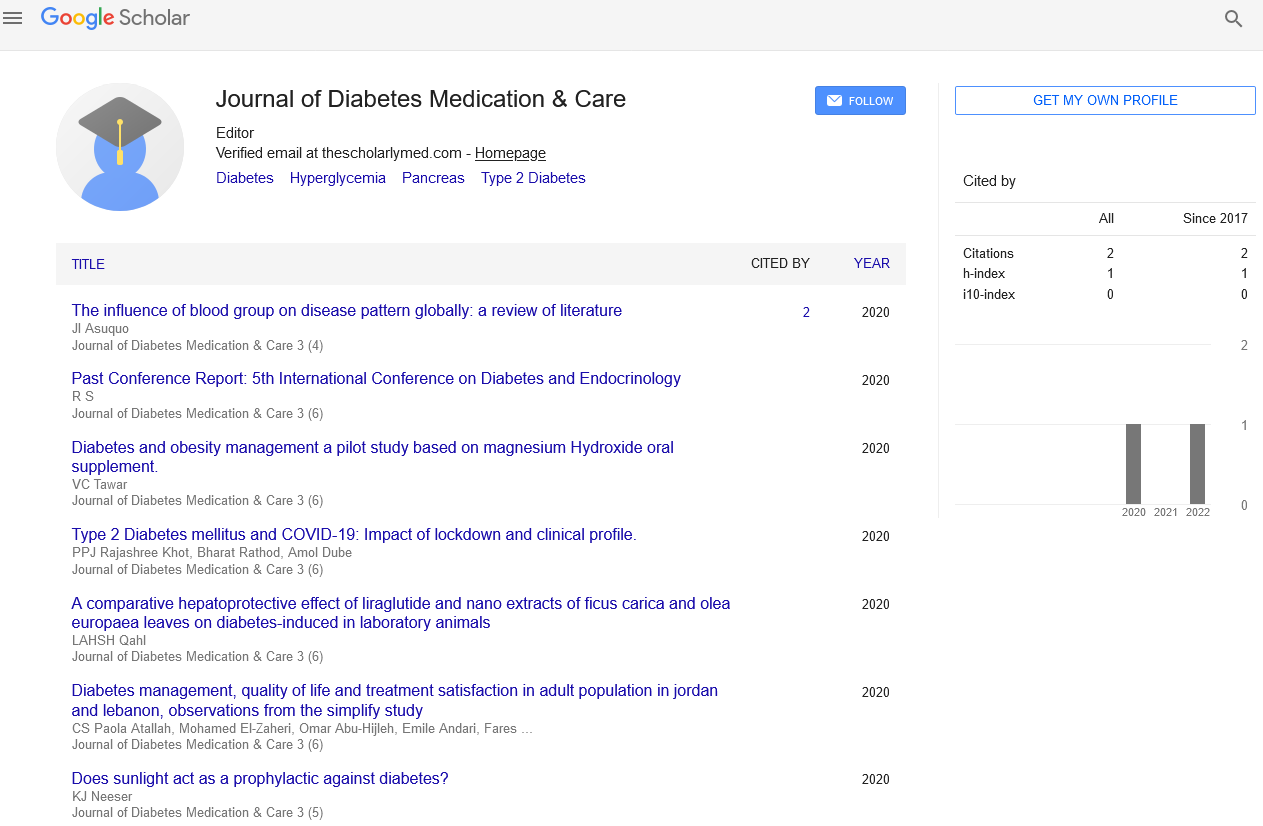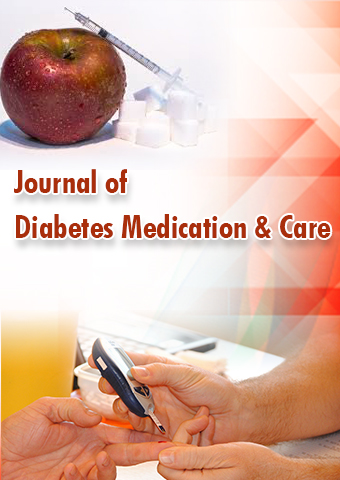Perspective - Journal of Diabetes Medication & Care (2024) Volume 7, Issue 1
Transformative Breakthroughs: Current Advances in the Management of Diabetes Mellitus
- Corresponding Author:
- Josha Neumiler
Department of Medicine, University of Munich, Munich, Germany
E-mail: jneumiler@wiu.edu
Received: 08-Jan-2024, Manuscript No. JDMC-24-126487; Editor assigned: 11-Jan-2024, PreQC No. JDMC-24-126487 (PQ); Reviewed: 25-Jan-2024, QC No. JDMC-24-126487; Revised: 05-Feb-2024, Manuscript No. JDMC-24-126487 (R); Published: 12-Feb-2024, DOI: 10.37532/JDMC.2024.7(1).178-179
Introduction
Diabetes mellitus, a chronic metabolic disorder characterized by elevated blood glucose levels, affects millions worldwide. Over the years, extensive research has led to significant advances in the management of this condition, providing hope for a better quality of life for those living with diabetes. In this article, we will explore the latest breakthroughs in diabetes management, ranging from innovative therapies to technological advancements.
Description
Precision medicine
The era of one-size-fits-all diabetes management is gradually evolving into a more personalized approach through precision medicine. This revolutionary concept tailors treatment strategies based on an individual’s unique genetic makeup, lifestyle, and metabolic profile. Advancements in genetic testing and molecular diagnostics have enabled healthcare providers to identify specific genetic markers associated with diabetes susceptibility and response to different medications. This allows for more targeted and effective interventions, minimizing trial-and-error in treatment plans.
Closed-loop insulin delivery systems
The emergence of closed-loop insulin delivery systems, also known as artificial pancreas systems, has transformed diabetes care. These systems use Continuous Glucose Monitoring (CGM) devices to provide real-time data on blood glucose levels. Integrated with an insulin pump, the system automatically adjusts insulin delivery based on the CGM readings, maintaining glucose levels within a predefined range. This technology not only improves glycemic control but also reduces the burden of constant monitoring and decision making for individuals with diabetes.
GLP-1 receptor agonists
Glucagon-Like Peptide-1 (GLP-1) receptor agonists have gained prominence as an effective and innovative class of medications for managing diabetes. These drugs not only lower blood glucose levels but also promote weight loss and have cardiovascular benefits. Semaglutide, a long acting GLP-1 receptor agonist, has shown remarkable results in clinical trials, demonstrating superior efficacy in glycemic control compared to other medications. Its once weekly administration offers convenience and improved adherence for patients.
SGLT-2 inhibitors
Sodium-Glucose co-Transporter-2 (SGLT-2) inhibitors represent another class of drugs making significant strides in diabetes management. These medications work by inhibiting glucose reabsorption in the kidneys, leading to increased glucose excretion in urine. Beyond glycemic control, SGLT-2 inhibitors have demonstrated cardiovascular and renal benefits, making them a valuable addition to the treatment armamentarium. Ongoing research explores their potential role in preventing diabetic complications and improving overall cardiovascular health.
Immunotherapies
Emerging research suggests a link between the immune system and diabetes, leading to the exploration of immunotherapies as a novel approach. Immunomodulatory agents aim to preserve and restore beta cell function, addressing the autoimmune component of type 1 diabetes. While still in the early stages of development, these therapies hold promise for altering the course of the disease, potentially reducing or eliminating the need for insulin therapy.
Telemedicine and digital health
The digital revolution has ushered in a new era of diabetes management through telemedicine and digital health tools. Remote monitoring, virtual consultations, and mobile applications empower individuals to actively participate in their care. Wearable devices and smartphone apps help track glucose levels, medication adherence, and lifestyle factors. These digital tools not only enhance patient engagement but also facilitate timely intervention and personalized feedback from healthcare providers.
Bariatric surgery for diabetes remission
Bariatric surgery, traditionally considered for weight management, has demonstrated remarkable effects on diabetes remission. Recent studies highlight the significant impact of procedures like gastric bypass and sleeve gastrectomy on improving insulin sensitivity and glucose metabolism. While not a standard approach for all individuals with diabetes, bariatric surgery may be considered in select cases, especially for those with obesity and uncontrolled diabetes.
Conclusion
The landscape of diabetes management is undergoing a profound transformation, driven by scientific advancements and technological innovation. Precision medicine, closed-loop insulin delivery systems, novel drug classes, immunotherapies, and digital health tools collectively contribute to a more comprehensive and personalized approach to diabetes care. As researchers continue to unravel the complexities of this condition, the future holds great promise for improved outcomes and enhanced quality of life for individuals living with diabetes. Embracing these cutting-edge developments is essential for healthcare professionals and individuals alike to navigate the evolving landscape of diabetes management successfully.

